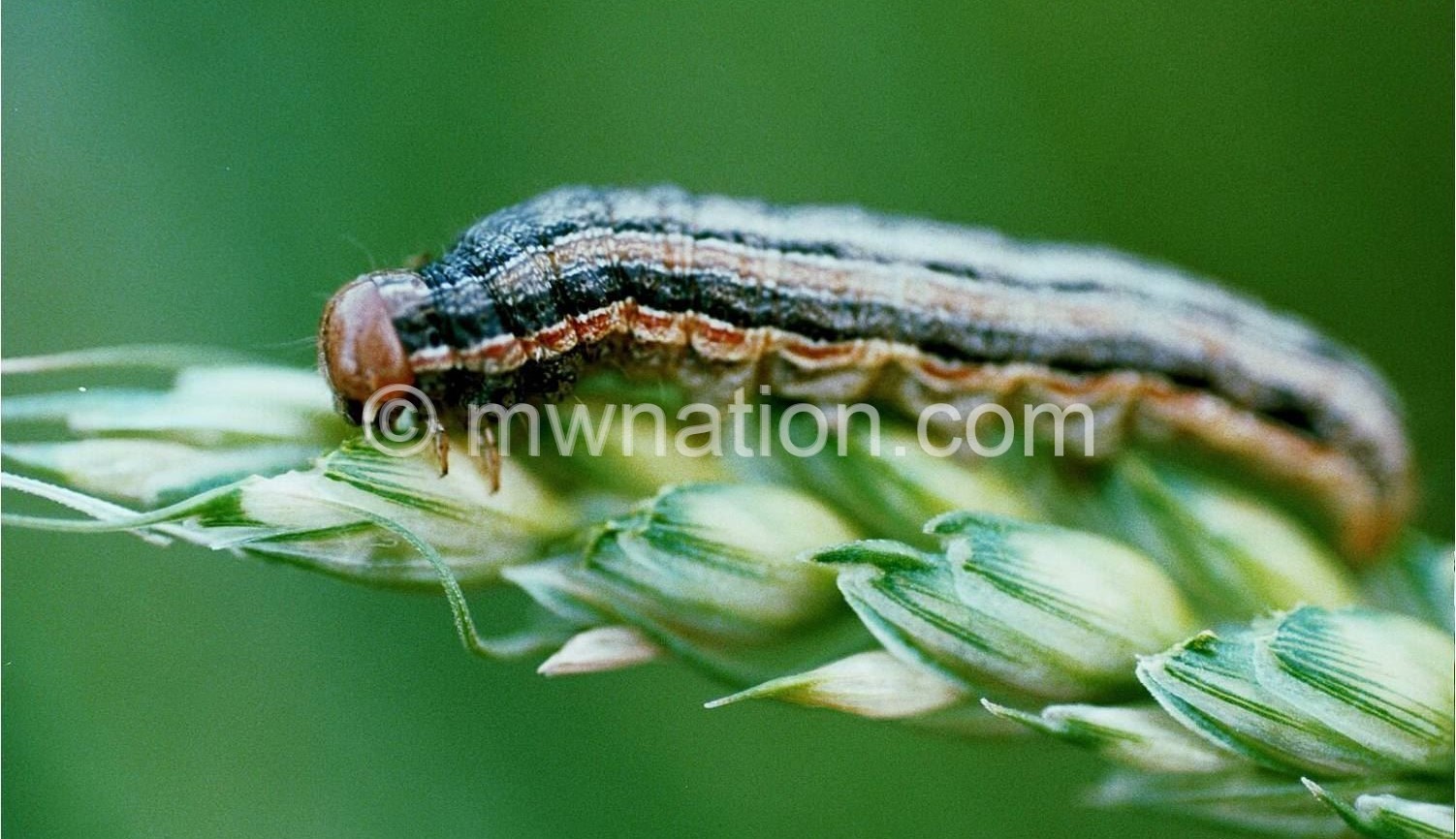K500m for fall army worms fight
Ministry of Agriculture, Irrigation and Water Development has disclosed that developmental partners have pumped in about K500 million to control fall army worms.
The fall army worms attacked 140 000 hectares during the 2016/2017 farming season and there are fears that they will continue destroying the winter crops.
Fall army worms destroy different types of crops in the grass family and, if left untreated, they can reduce yields by more than 73 percent.
Speaking on the sidelines of the launch of the Northern Region Fall Army Worm Key Leader’s Sensitisation Campaign in Mzuzu on Saturday, comptroller of agriculture extension and technical services Albert Changaya said the money is mainly for the Pheromone Traps project.
With the pheromone traps, researchers will be using sheets with sticky substances scented with female moth to trap male moths. The female moth lays fall army worm eggs in masses.
“Of course, we will only attract the male moths. However, through this, we will also find out the population of the moths in a normal population between males and females,” said Changaya.
In the 2017/2018 budget, government has allocated K135 million towards the fight against the army worms.
Changaya said Brazil alone spends about $600 million a year in controlling the fall army worms.
Deputy Minister of Agriculture, Irrigation and Water Development Aggrey Masi said more development partners have assured government of assistance in dealing with the pest.
He said the ministry will send researchers in areas which have been heavily attacked to work on the project.
Apart from the pheromone traps, researchers are also currently screening forty pesticides that will be recommended to farmers to apply against the fall army worm.
According to Changaya, the results might be ready in the next three weeks.
He said 10 of the chemicals were already released in the country, but used for various crops.
“We would like to also check if these can also be used for controlling the fall army worm which means we will not have problems of registration for these chemicals,” said Changaya.





